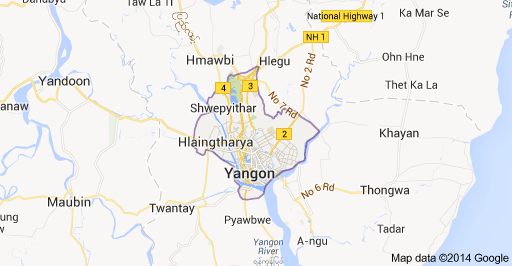Headline
Myanmar prepares for crucial census that could inflame ethnic and religious tensions
YANGON, Myanmar – As Myanmar continues its transition from decades of military rule and self-imposed isolation, it is about to carry out a census that experts say is crucial for national planning and development, but also likely to inflame already soaring ethnic and religious tensions.
No one knows exactly how many people live in the predominantly Buddhist nation. The generally accepted figure is around 60 million, but that is based on extrapolations from Myanmar’s last census, conducted 30 years ago, a count believed by experts to have significantly underrepresented the Muslim community and excluded large swaths of the country plagued by civil strife.
President Thein Sein’s government says the upcoming census, which will see around 100,000 enumerators going door-to-door from March 30 to April 10 with a complex 41-point questionnaire, will give “an accurate picture of how many people are living in the country.” That will help policymakers determine what resources are needed, from education and health care to housing and transport, as Myanmar continues its delicate transition to democracy. The information will also help guide foreign investors.
But critics warn the census – put together in collaboration with the U.N. Population Fund – has been fraught with problems from the get go. In short, they say, too much information is being collected.
Questions about race and ethnicity could inflame tensions – and possibly violence – especially in the northwestern state of Rakhine, where Buddhist ethnic Rakhine mobs have in the last two years launched a series of bloody attacks targeting the long-persecuted Rohingya Muslim minority, according to the Brussels-based International Crisis Group.
Up to 280 people have died and another 140,000 forced to flee their homes in the violence.
Worried that respondents will identify themselves as Rohingya – there is no such category on the survey, but they are free to write it in beside “other”- local ethnic Rakhine have announced a state-wide boycott of the census. They have received support from radical monk Wirathu, who toured the region earlier this month warning of the potential dangers of the census.
Zaw Aye Maung, chairman of the Rakhine Nationalities Democratic Party and Rakhine affairs minister for the Yangon region, said the concern is that the census will be used by Rohingya to try to “legitimize their status.”
“This could create complications in the future,” he said.
Though many of the estimated 1.3 million Rohingya living in Myanmar arrived generations ago, many are considered by the government to be Bangladeshi immigrants and have been denied citizenship under national law.
As a result, their freedom of movement is restricted and they have little access to education, health care and other basic services.
Daniel Gray, Asia analyst for the British-based risk analysis group Maplecroft, said there is also a feared backlash if the census shows a large jump in the Muslim community as a whole.
The figure from the 1983 census, which said Muslims represented around 4 per cent of the population, was widely believed to be skewed by former military rulers to prevent political unrest.
If the numbers turn out to be double or triple that, as is likely, it could “feed into the nationalist narrative that Buddhist traditions are under siege from the spread of Muslim beliefs and their rapidly expanding population,” Gray said.
Extremist movements could use this as another excuse for violence.
Ethnic minorities, which together make up about 40 per cent of Myanmar’s population, argue they were not properly consulted ahead of the census, which requires respondents to identify themselves as one of 135 ethnic groups. Long suspicious of the government, they worry the classification system could be used for political gain.
In some cases, the ethnic groups listed on the survey create too many subdivisions. The Chin, for instance, account for 53 of the categories, though many of the names listed are simply of villages or clans, not separate ethnic groups, fracturing the already small group. In other cases, subtribes with different ethnicities are grouped together, increasing the chances of misrepresentation.
Ethnic groups have been vociferous in their complaints, noting that the census is creating unnecessary divisions and mistrust even as the government scrambles to sign peace accords aimed at ending decades-old rebellions in border areas.
Kachin youth network member activist Khun Jya blamed the United Nations for failing to listen to voices of ethnic communities.
The country’s main armed ethnic group, the Kachin Independence Army, said it would not allow census collectors in areas under their control for fear it could cause tensions among different local tribes.
“The process is aimed at dividing the ethnic groups,” said KIA spokesman La Nan, adding that aside from members of the Buddhist Myanmar majority, which dominates almost all aspects of government, everyone is “unhappy and concerned about the process.”






















